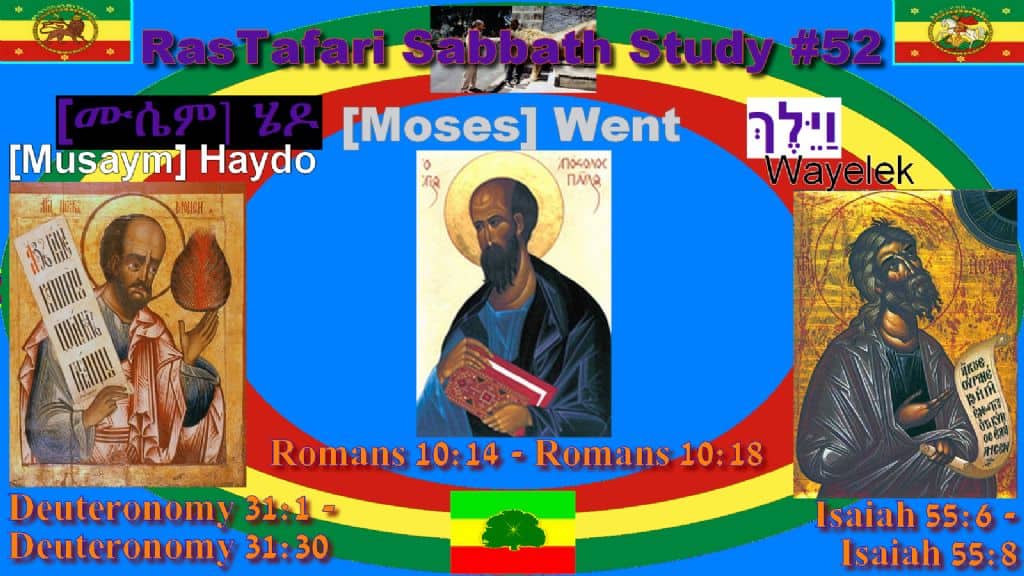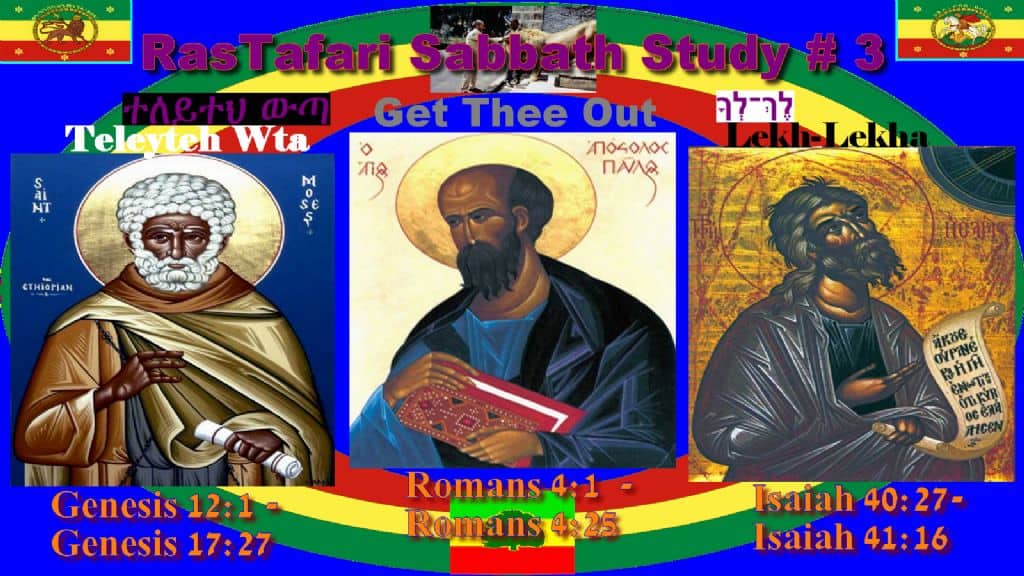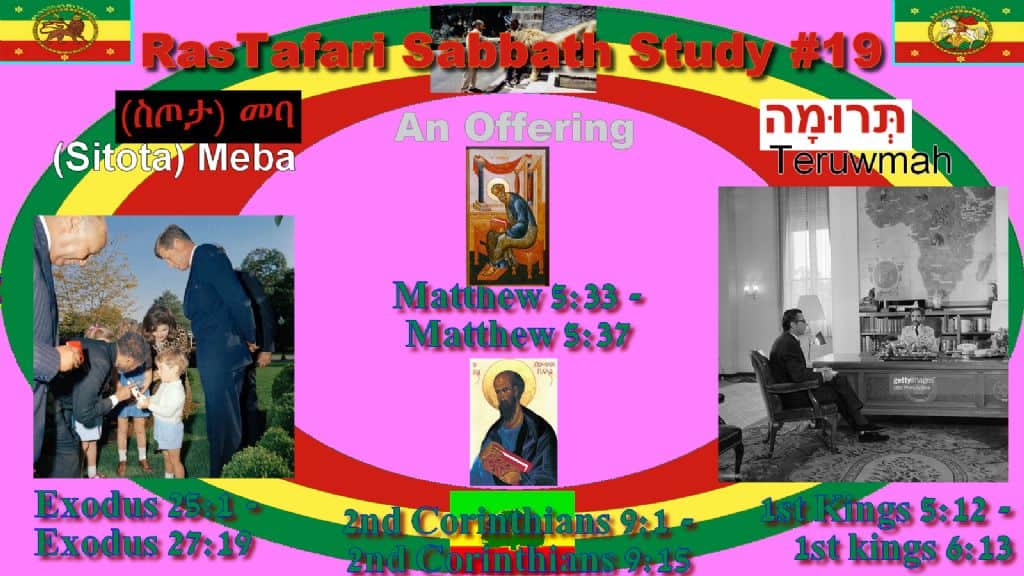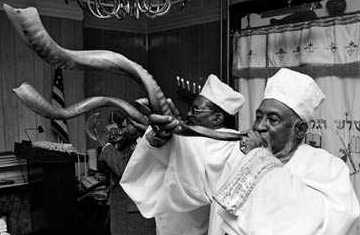This Week's Portion #52
Vayelech |וילך | "And he went" [ሙሴም] ሄዶ | [Museym] Heydo
*For a PDF version of All the Torah Portions Schedule, click here to download!
1. Torah Reading
Deuteronomy 31:1-31:30
Vayelech
2. Prophets Reading
Isaiah 55:6-56:8
3. New Testament Reading
Romans 10:14-18
Portion Outline - TORAH
- Deuteronomy 31:1 | Joshua Becomes Moses' Successor
- Deuteronomy 31:9 | The Law to Be Read Every Seventh Year
- Deuteronomy 31:14 | Moses and Joshua Receive God's Charge
- Deuteronomy 31:30 | The Song of Moses
Portion Outline - PROPHETS
- Isaiah 55:1 | An Invitation to Abundant Life
- Isaiah 56:1 | The Covenant Extended to All Who Obey
- Isaiah 56:9 | The Corruption of Israel's Rulers
Portion Study Book Download & Summary
 DEVARIM Hebrew Book of Deuterronomy - Torah Portion Vol.5 (FREE PDF)
DEVARIM Hebrew Book of Deuterronomy - Torah Portion Vol.5 (FREE PDF)
Vayelech The name of the fifty-second reading from the Torah is Vayelech (וילך), which means “and he went.” The name is derived from the first word of the first verse of the portion: “So Moses went (vayelech) and spoke these words to all Israel.” In this short portion, Moses commands an assembly for a public Torah reading and covenant renewal once every seven years. He then finishes writing the scroll of the Torah and has it deposited in the Holy of Holies next to the ark of the covenant.
Portion Commentary - Vayelech
Moses and Gethsemane
Thought for the Week:
Death is offensive to the human soul, for God has set an immortal longing in our hearts, as it is written, “He has also set eternity in their heart.” (Ecclesiastes 3:11)
Commentary:
In the Jewish legends about his death, Moses does not go passively or willingly. Instead, he argues vociferously for life. In anguish of soul, he implores God to spare him the indignity of death. He beseeches God for mercy, and attempts to counter the heavenly decree. It seems strange that the traditional stories would paint Moses—the hero of heroes—as reluctant to accept death. Wouldn’t we expect Moses to boldly stride into that dark night? But Moses is an example for all of God’s people, and from His example we learn that we are not to accept death passively. Moses tells us, “Choose life in order that you may live.” (30:19)
In some religious circles, there is an unhealthy and morbid fascination with death. Since “to be absent from the body is to be home with the Lord,” (2 Corinthians 5:8) it might seem natural to look forward to death and embrace it when it comes. But death is the enemy—the last enemy. (1 Corinthians 15:26) Though death is an inevitable certainty, it is never our hope. Our hope is in life, and the only reason we find comfort in death is that we have seen life (which is Messiah) overcome it.
Because we are made for immortality, death is a sacrilege to our inner-being. Therefore, in the traditional stories about Moses, he resists death, even though his hope is certain.
In the same way, the second Moses, goes to death in anguish. His reluctant struggle in Gethsemene and His agonized cry from the cross might give us pause to wonder. He says, “Father, if it is possible, let this cup pass from Me!” (Matthew 26:39) How is it, when so many martyrs have gone bravely to their deaths, that the Master would flinch in the face of His own—especially when He knew that His death would purchase the redemption of Israel? It is incomprehensible until we remember the stories of Moses. Death is abhorrent, and one has an obligation to strive against it. Just as Moses beseeched God for reprieve, so too, Yeshua struggles for life. Yet ultimately, both Moses and the Master surrender to the will of the Father. “Not as I will, but as You will.” (Matthew 26:39) For it is in submission to the Father that life is found. They chose life, even in death, and in the death of Messiah, we find life.














































































































